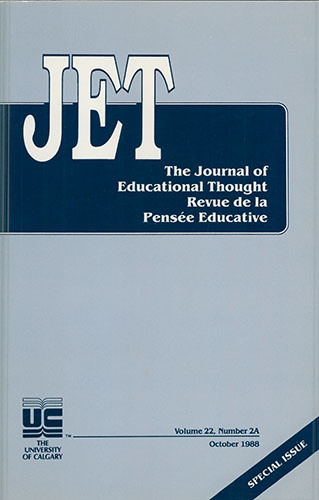Technical Knowledge in Science Teaching
DOI :
https://doi.org/10.55016/ojs/jet.v22i3.44230Résumé
The issues involved with learning are varied, but a central concern is the increasing use of technical knowledge to understand the world. This concern leads us to question the nature and conceptualization of knowledge and moves us into the philosophical areas of ontology and epistemology - the meaning and grounds of knowledge. We are also moving into a sociocultural area where justification of knowledge becomes important. In education, constrained as it is by curriculum guidelines and procedures for bureaucratic and administrative accountability, we also discover that the conceptualization of knowledge involves sociocultural constraints as to what counts as a viable understanding of the world. Technical knowledge has come to gain social and cultural predominance, both as an aim of education and as a means of educating. Thus, the place of technical knowledge in science teaching involves both an implicit philosophical world view and, indirectly, a sociocultural milieu which condones that view. It is the combination of these two factors that estranges students from scientific knowledge and helps reproduce technical knowledge.Téléchargements
Publié
2018-05-16
Numéro
Rubrique
Articles
Licence
The Journal of Educational Thought retains first publication rights for all articles. The Journal grants reproduction rights for noncommercial educational purposes with the provision that full acknowledgement of the work’s source be noted on each copy. The Journal will redirect to the appropriate authors any inquiries for further commercial publication of individual articles. All authors wishing to publish in JET will be asked to fill in and sign a Consent to Publish and Transfer of Copyright agreement.
Authors must affirm that any submission to JET has not been and will not be published or submitted elsewhere while under considration by JET.

